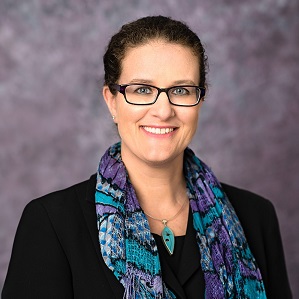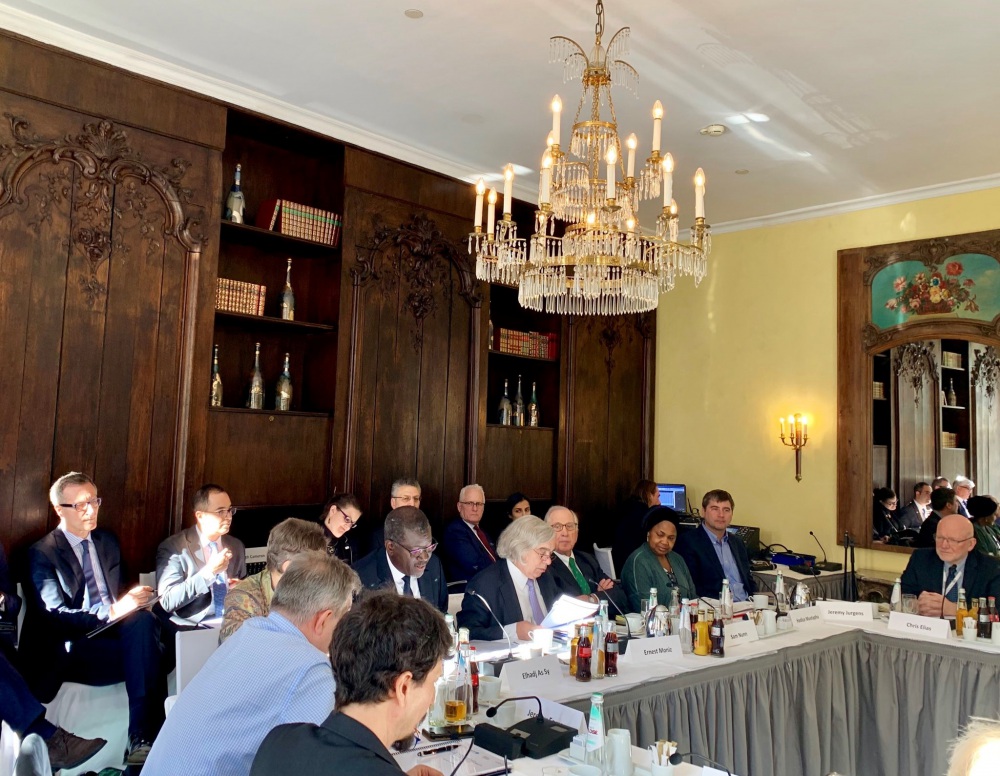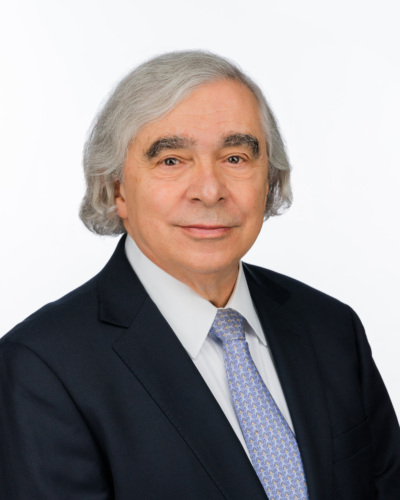
Tabletop Exercise for Senior Global Leaders on International Response to Deliberate Biological Events
On February 14, 2019 in Munich, NTI and partners from Georgetown University and the Center for Global Development, convened a tabletop exercise with senior leaders from around the world aimed at identifying gaps and making recommendations to improve the global system for responding to deliberate, high consequence biological events.

- Munich, Germany
The world is increasingly connected, and global catastrophic biological risks are magnified by global travel, terrorist and state interest in WMD, urbanization, and rapid advances in technology. There has been little exploration of the global community’s capacity to prepare for and respond to deliberate release of infectious disease agents.
On February 14, 2019 in Munich, on the eve of the 2019 Munich Security Conference, NTI and partners from Georgetown University and the Center for Global Development, convened a tabletop exercise with senior leaders from around the world aimed at identifying gaps and making recommendations to improve the global system for responding to deliberate, high consequence biological events. NTI CEO Ernest J. Moniz and NTI Co-Chair Sam Nunn participated alongside former national leaders, United Nations officials, diplomats, senior public health and humanitarian responders, and security experts. The event was keynoted by Mr. Elhadj As Sy, Secretary General of the International Federation of Red Cross and Red Crescent Societies and coordinated with Dr. Gro Harlem Brundtland. Brundland and Sy co-chair the Global Preparedness Monitoring Board charged with monitoring global readiness for health emergencies. The event sought to identify urgent improvements needed to better coordinate, respond to, and investigate deliberate biological events and explored specific recommendations that will be briefed during senior-level events during 2019.
“Today we are envisaging a specific scenario which has never been tested out. And it will raise vital questions with implications for national and global policies on public health, security, information-sharing and civil and state protection.” –Dr. Gro Harlem Brundtland, Co-Chair, Global Preparedness Monitoring Board, Former Prime Minister of Norway, Former Director-General of the World Health Organization
“Today I am sure we will hear strong words, like “apocalyptic’ and ‘existential’. It’s true: they are not out of place. Because whether or not the biological incidents of the future are the perverted works of human hands, they have the capacity to bring about untold human suffering.” —Mr. Elhadj As Sy, Secretary General, International Federation of Red Cross and Red Crescent Societies, Co-Chair, Global Preparedness Monitoring Board, Former Director of Partnerships and Resource Development, UN International Children's Emergency Fund
The Scenario
The tabletop simulation highlighted the unique challenges faced by the complex web of international stakeholders, leaders, and response communities when coordinating action against a deliberate biological attack—especially when the consequences are spreading quickly around the globe. To add to the challenge, this particular scenario highlighted the catastrophic potential of a genetically modified agent resistant to available medical treatment. Watch the videos associated with each of the four scenario phases below.
Phase I: Participants were introduced to Vestia, a fictitious country with a weak central government and a history of political instability. Multinational military groups operate within Vestia to fight off terrorist groups that occupy its countryside. An unusual outbreak develops in Vestia, eventually uncovered to be pneumonic plague, and cases begin to appear in other countries across Europe.
Phase II: Pneumonic plague is highly contagious, virulent, and antimicrobial resistant. Cases are spreading quickly across the globe and existing countermeasures are not working. Participants were confronted with the devastating news that nearly 80% of people infected with the disease have died.
Phase III: Two months have passed and the plague is continuing to spread without an effective vaccine. Countries around the globe, now faced with economic crisis and spreading misinformation, have also begun closing borders and limiting travel. With some suspicion that the source of the plague was a deliberate attack on the country, Vestia’s Prime Minister has requested that the United Nations Secretary General, in concert with the United Nations Security Council, conduct an official investigation into the ongoing plague outbreak.
Phase IV: Experts at Robert Koch Institute in Germany determined that the responsible plague strain was genetically engineered to resist antimicrobial treatment. The strain is linked back to terrorist groups operating in Vestia's neighboring country, Carta. The United Nations Security Council called for an emergency meeting to discuss this alleged use of biological weapons, and they will consider next steps. Participants were left to discuss the impact of this revelation and explore how the international community would coordinate a response.
Watch all four videos together via this link.
Click here to read the NTI | bio report, "A Spreading Plague: Lessons and Recommendations for Responding to a Deliberate Biological Event."
The effort was made possible through generous support from Global Affairs Canada’s Weapons Threat Reduction Program and the Open Philanthropy Project.


